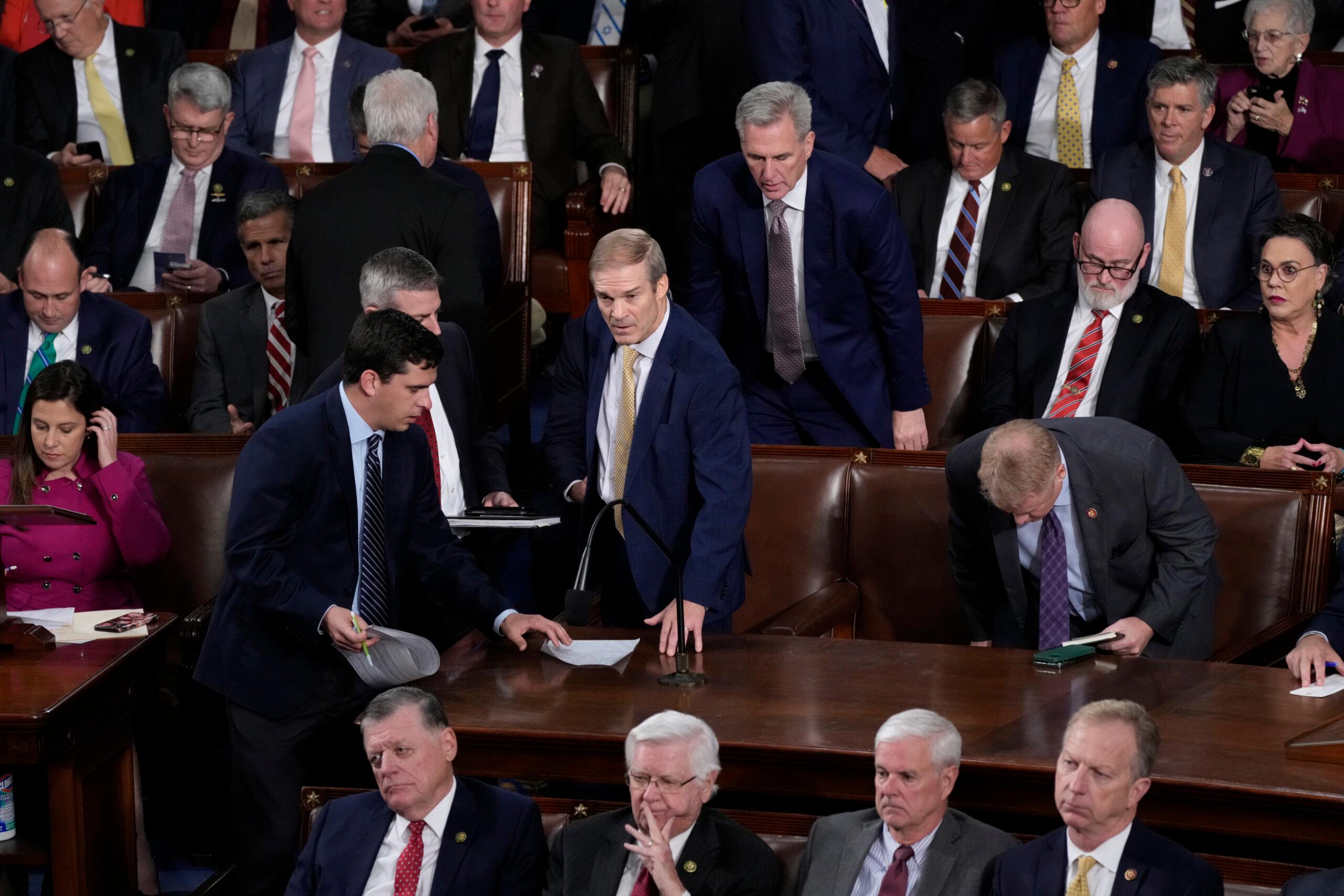
Updated: 1:33 p.m., October 18, 2023
The House of Representatives remains without a Speaker.
Ohio Rep. Jim Jordan’s second attempt to claim the House speakership fell short Wednesday when less than 217 Republicans said his name for speaker. In the end, 199 Republicans supported him, while 22 voted for someone else.
Colorado Republican Rep. Ken Buck again voted for GOP Whip Tom Emmer, while Reps. Lauren Boebert and Doug Lamborn voted for Jordan. All of Colorado’s Democratic House members remain united behind Minority Leader Hakeem Jeffries.
While Jordan was able to flip two of the holdouts from Wednesday, the others stood firm and were joined by four more. Those that flipped away from Jordan in the second round were fewer than his allies had feared going into the vote.
After huddling with former Speaker Kevin McCarthy, Jordan gave no indication that he’d give up his quest for the gavel.
“We’re prepared to get a Republican Speaker, that’s what I’m focused on,” said Jordan, adding that he planned to talk with the holdouts.
Members left the chamber unsure of what the next step would be: another attempt at a vote later today or tomorrow or a conference meeting.
Boebert said she’s prepared to come back and “vote for Jim Jordan again.” Many others in the far right flight agreed.
Talking to reporters, McCarthy said Jordan should be given more time to solidify his support. McCarthy said it took him months to build his backing for Speaker, not weeks or days.
Still, others in the conference were very cognizant of the math and that those who oppose Jordan are also dug in.
Many Republicans left the vote focused on opening the floor back up for work by giving Speaker Pro Tempore Patrick McHenry the authority to move legislation. It was an idea endorsed by two former Republican House Speakers: John Boehner and Newt Gingrich.
“There was no change, in fact a loss of a vote today,” said NY Rep. Marc Molinaro, a Jordan supporter. “I think the most appropriate approach at this point is to empower the Speaker Pro Tempore, give us the time to work as a conference and more importantly get back to governing.”
No legislation has moved on the floor for two weeks, and it was only this week that multiple committees began holding hearings again.
Rep. Dave Joyce of Ohio has reportedly drafted a resolution to give McHenry additional authority for a limited time. “It is time to look at other viable options. By empowering Patrick McHenry as Speaker Pro Tempore we can take care of our ally Israel until a new Speaker is elected.”
Boebert said she would be a “no” on that vote.
If the resolution, or anything similar, were brought to the floor, it would require bipartisan support. And some Coloradans were open to the idea, depending on the details.
Democratic Rep. Brittany Pettersen said she’s “open to solutions so that we can meet the challenges that we’re facing internationally and here at home. But I think it has to be negotiated on a narrow scope.” For her, that means a limited time and making sure more suspension bills, which would require two-thirds of the chamber to pass, are brought to the floor.
Finding a path forward was also key for Rep. Yadira Caraveo.
“It’s clear that [Republicans] have no plan and they really are going to have to rely on us to come up with a way of opening the House back up and make sure we’re governing again,” she said. “So I would look at whatever deal they put forward, when they’re actually willing to do that.”
As Republicans continue to struggle to elect a leader, Democratic Rep. Diana DeGette said there are pressing issues that need to be addressed in a bipartisan manner, including support for U.S. allies, Israel and Ukraine. No additional aid can move forward without a functioning House. And in the end, there will have to be bipartisan agreement.
“Our government is controlled by Democrats in the Senate and the White House. The American people (and) most of the Republicans in the House believe we should have funding for Ukraine and Israel. So, I don’t know how it’s going to happen, but it will have to happen.”
Some Republicans also echoed that sentiment.








